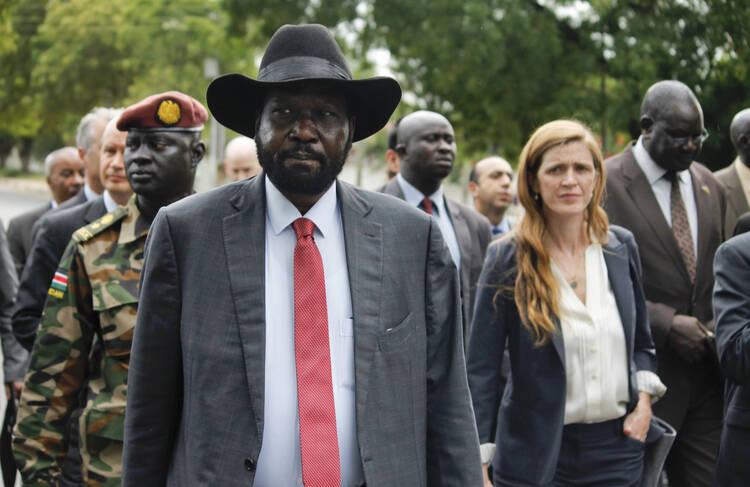South Sudanese activists say they face government intimidation in retaliation for meeting with the visiting U.N. Security Council last weekend, and some have fled the turbulent country.
The reports are the latest sign of hostility by the government toward the international community as this East African country, the world's youngest, tries to recover from a civil war that threatens to grind on.
At least three local organizations have been told by South Sudan's government they can no longer operate. On Wednesday, the U.S. envoy to South Sudan, Donald Booth, told Congress the number of blacklisted groups could be as high as 40.
The U.N. mission in South Sudan said in a statement Thursday it is "deeply concerned" by reports of harassment and intimidation against some civil society members who met with the diplomats in the capital, Juba. The statement does not mention the source of intimidation.
"On Monday, we started receiving information about security threats and to our lives and that we were wanted by the National Security," said one activist who was at the meeting with the U.N. diplomats.
The government harassment is in response to position papers that supported an arms embargo on South Sudan or a new regional protection force to protect civilians after a recent eruption of fighting in the capital, the activist said.
The government dislikes both ideas, but the Security Council diplomats, led by U.S. Ambassador Samantha Power, brought a threat with them: Accept the force or face the arms embargo.
Heads of organizations that met with the diplomats have been ordered to report to the government "but fear to report because they don't know what will happen," the activist said, speaking on condition of anonymity for fear of further retaliation.
The head of one organization, Edmund Yakani, told The Associated Press he was prevented from attending the Security Council meeting. In addition, a letter from the government to his prominent Community Empowerment for Progress Organization, obtained by the AP, orders his group to shut down within two weeks or be considered "illegal.'
Government officials were not immediately available for comment Thursday.
South Sudan is struggling to recover from civil war that began in December 2013 and killed tens of thousands. Fighting in several places has continued despite a year-old peace deal, and violence in the capital in July left hundreds dead.
The July fighting led the United States and the rest of the Security Council to approve an additional 4,000 regional peacekeepers to protect civilians in Juba and elsewhere.
Officials and diplomats have said it will take more than two months for the extra peacekeepers to arrive, and South Sudan this week signaled that none will be allowed to enter the country if the government can't dictate which nations contribute to the force and what arms they can carry.
Amid the general chaos, activist and other groups in South Sudan have said they are under pressure from a law signed this year that says organizations shouldn't violate the country's sovereignty. The law also gives the government the power to supervise and monitor non-governmental groups.
On Wednesday, Booth told Congress the law is "problematic" and could limit the ability of international organizations to operate in the country.
Copyright 2016 The Associated Press. All rights reserved. This material may not be published, broadcast, rewritten or redistributed.








